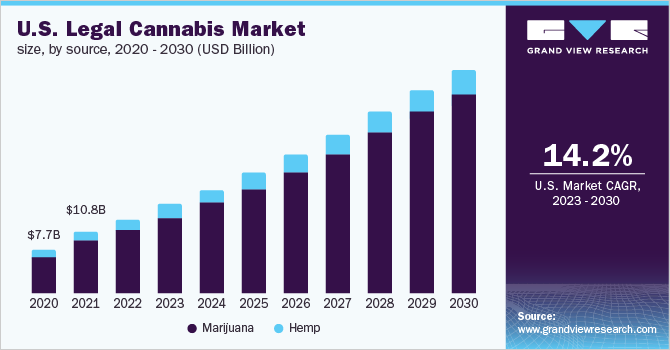CBD Legality: Exploring the Latest Legislative Initiatives Across the US
Introduction
With the growing popularity of CBD products, there has been a significant focus on the legality of these substances across the United States. CBD, short for cannabidiol, is a non-psychoactive compound derived from the hemp plant. While it offers potential health benefits, the legal landscape surrounding its use and distribution remains complex.
The Farm Bill of 2018
In December 2018, the passage of the Farm Bill was a turning point for CBD legality. The bill removed hemp from the list of controlled substances and made it an agricultural commodity. This meant that hemp-derived CBD containing less than 0.3% THC (tetrahydrocannabinol, the psychoactive compound found in marijuana) was no longer classified as an illegal substance.
State-Level Legislation
Although the Farm Bill paved the way for the legal sale and consumption of CBD on the federal level, individual states have the authority to impose their regulations. This has resulted in a patchwork of laws and varying degrees of CBD legality across the country.
State Examples:
1. California: California legalized the recreational use of marijuana in 2016 and has since implemented a comprehensive regulatory system for both THC and CBD products. CBD derived from hemp is legal for both recreational and medical purposes.
2. Texas: Texas has shifted its stance on CBD legality in recent years. The state permits the use of hemp-derived CBD products as long as they contain less than 0.3% THC. However, CBD derived from marijuana is still illegal.
3. New York: New York decriminalized the recreational use of marijuana in 2019. While hemp-derived CBD is legal on the federal level, the state has introduced its regulations, allowing the sale of CBD-infused food and beverages but banning CBD-infused edibles.
Challenges and Considerations
Despite the progress made in CBD legality, challenges persist. One major issue is the lack of standardization in labeling and product quality. As the industry remains largely unregulated, consumers must exercise caution when purchasing CBD products.
Another challenge is the confusion caused by the disparity between state and federal laws. This has created a legal gray area and uncertainty for businesses and consumers alike.
Furthermore, some states have taken a stricter approach to CBD legality, requiring special licensing or imposing additional restrictions. It is crucial for individuals to stay informed about their respective state regulations to ensure compliance.
Conclusion
The legal status of CBD products in the United States is evolving, with lawmakers and regulators constantly adapting to changing attitudes. While the 2018 Farm Bill has laid a foundation for CBD legality, variations in state laws continue to shape the landscape. As the industry continues to grow, it is essential for consumers and businesses to remain up-to-date on the latest legislative initiatives to navigate the complex world of CBD.
Sources:
Share:


